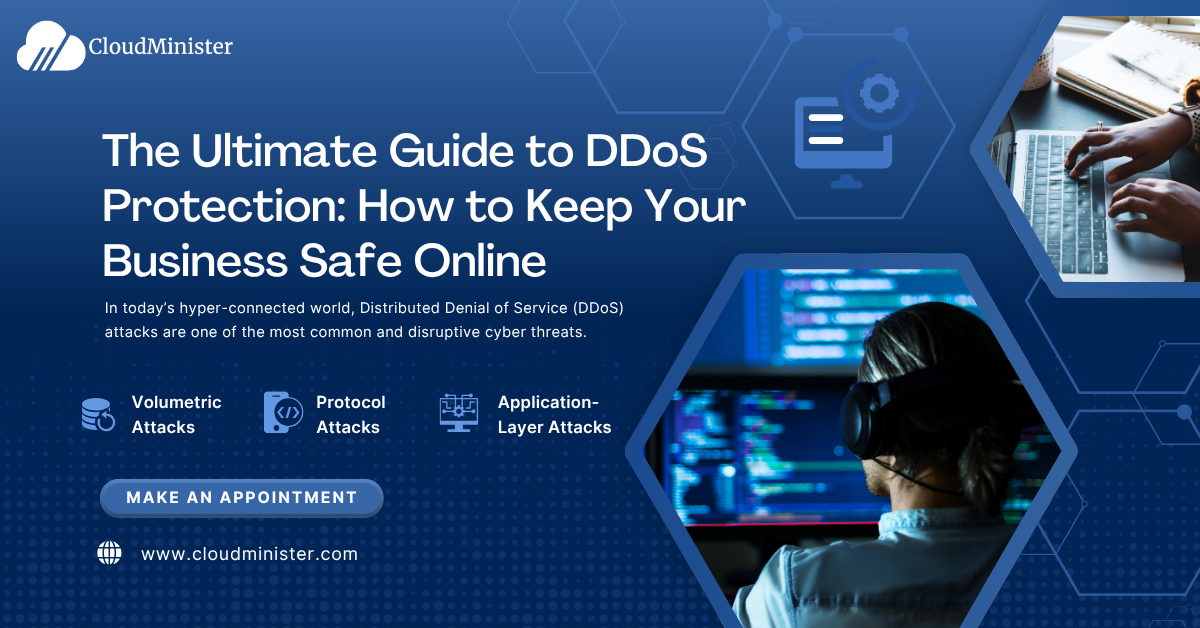The Ultimate Guide to DDoS Protection: How to Keep Your Business Safe Online

Strong 8k brings an ultra-HD IPTV experience to your living room and your pocket.
Introduction
In today’s hyper-connected world, Distributed Denial of Service (DDoS) attacks are one of the most common and disruptive cyber threats. These attacks can take down websites, disrupt online services, and cause significant financial and reputational damage.
Whether you run an e-commerce store, a SaaS platform, or a corporate website, DDoS protection is no longer optional it’s a necessity. In this guide, we’ll explore what DDoS attacks are, how they work, and the best strategies to defend against them.
What is a DDoS Attack?
A DDoS attack occurs when multiple compromised systems (often part of a botnet) flood a target such as a website, server, or network—with overwhelming traffic, making it inaccessible to legitimate users.
Common Types of DDoS Attacks
Volumetric Attacks – Overwhelm bandwidth with massive traffic (e.g., UDP floods, ICMP floods).
Protocol Attacks – Exploit weaknesses in network protocols (e.g., SYN floods, Ping of Death).
Application-Layer Attacks – Target specific apps or services (e.g., HTTP floods, Slowloris).
Why DDoS Protection is Critical
Financial Losses: Downtime can cost businesses thousands per minute.
Reputation Damage: Customers lose trust in unreliable services.
Security Risks: Some DDoS attacks mask data breaches or malware injections.
Without proper protection, even a short-lived attack can have long-term consequences.
How to Protect Against DDoS Attacks
1. Deploy a Dedicated DDoS Mitigation Service
Cloud-Based Scrubbing: Services like Cloudflare, AWS Shield, and CloudMinister filter malicious traffic before it reaches your servers.
On-Premise Solutions: Hardware-based solutions (e.g., firewalls, intrusion prevention systems) can help but may struggle with large-scale attacks.
2. Use a Content Delivery Network (CDN)
A CDN distributes traffic across multiple servers, reducing the impact of an attack.
Providers like Akamai and Cloudflare offer built-in DDoS protection.
3. Implement Rate Limiting & Traffic Filtering
Block suspicious IPs and limit connection requests per second.
Use Web Application Firewalls (WAFs) to filter malicious HTTP requests.
4. Ensure Redundancy & Scalability
Use load balancers to distribute traffic efficiently.
Deploy auto-scaling in cloud environments to handle sudden traffic spikes.
5. Monitor & Respond in Real-Time
24/7 Network Monitoring: Detect anomalies before they cause downtime.
Incident Response Plan: Have a clear action plan to mitigate attacks quickly.
Worried about DDoS attacks? Learn how to protect your website with our expert security solutions!
Choosing the Right DDoS Protection Provider
When selecting a DDoS protection service, consider:
- Attack Coverage (Layers 3, 4, and 7)
- Mitigation Speed (How quickly can they block attacks?)
- Scalability (Can it handle large-scale attacks?)
- Cost & Support (Is it budget-friendly with 24/7 assistance?)
- Popular providers include Cloudflare, AWS Shield, Imperva, and CloudMinister.
Final Thoughts
DDoS attacks are growing in frequency and sophistication, making proactive protection essential. By combining cloud-based mitigation, traffic filtering, and real-time monitoring, businesses can stay resilient against these threats.
Don’t wait until an attack happens secure your infrastructure today!
🔗 Want expert DDoS protection? Explore CloudMinister Technologies or contact us for a free consultation.
FAQs
Q: Can small businesses be targeted by DDoS attacks?
A: Yes! Attackers often target SMEs because they typically have weaker defenses.
Q: How much does DDoS protection cost?
A: Costs vary—basic plans start at $20/month, while enterprise-grade solutions can be customized.
Q: Can a VPN protect against DDoS?
A: A VPN hides your IP, making attacks harder, but it doesn’t replace dedicated DDoS protection.
Note: IndiBlogHub features both user-submitted and editorial content. We do not verify third-party contributions. Read our Disclaimer and Privacy Policyfor details.



